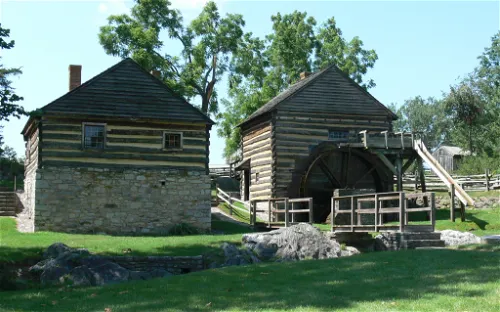Cyrus Mccormick Museum and its collection
The Cyrus McCormick Farm and Workshop, also known as Walnut Grove, is situated near Steele's Tavern and Raphine, close to the northern border of Rockbridge and Augusta counties in Virginia. This historic site was the family farm of inventor Cyrus Hall McCormick, who improved and patented the mechanical reaper, a significant invention that led to the creation of the combine harvester.
Museum Features and Exhibits
The museum, managed by the Virginia Agricultural Experimental Station of Virginia Tech, offers free admission and spans 5 acres of the original 532-acre farm. Visitors can explore eight out of the nine original buildings that are still standing. These include a grist mill, blacksmith shop, slave quarters, carriage house, manor house, smoke house, schoolroom, and housekeeper's quarters, each playing a specific role in the daily routine of the Cyrus McCormick farm.
Birthplace of the Mechanical Reaper
The McCormick Farm at Walnut Grove is recognized as the birthplace of the mechanical reaper, the predecessor to the combine harvester. It is reported that Cyrus McCormick designed, built, and tested his reaper all within six weeks at Walnut Grove. This invention revolutionized farming, allowing farmers to cultivate larger plots of land than ever thought possible.
History & Anthropology Science & Technology Person & Artist Industrial heritage





